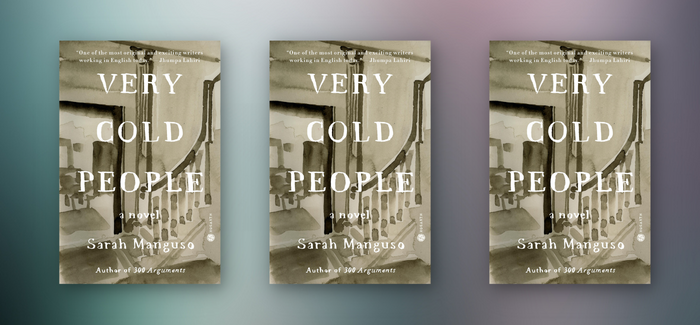Books
Fiction
Layers of Shame and Hot Rage In ‘Very Cold People’
Very Cold People
By Sarah Manguso (Hogarth)
There is plenty of heat in Very Cold People, Sarah Manguso’s quietly devastating coming-of-age tale. The debut novel, set in the 1980s, is about a Jewish girl—her mother is Jewish, her father is Italian—in a fictional Boston suburb.
The heat comes from the accruing rage that the girl, Ruth, feels toward her small, snowy town of Waitsfield, whose residents constantly conjure up images of Boston Brahmins (as in, “The Lowells speak only to the Cabots, and the Cabots speak only to God”).
The heat also comes from the protagonist’s many layers of shame: the shame of shouldering impostor status as a poor Jew in a wealthy town that venerates dead WASPs; the shame of feeling unloved by her narcissistic parents; and even the shame that she is made to feel because she is a girl—and then a young woman—in an environment where the dangers of living as such seemingly lurk in every crevice, around every corner.
“The background of my life was white and angry, with violent weather,” Ruth thinks to herself. Early on, Ruth and her childhood friends experience unwanted pregnancies, the physical and emotional abuse of relatives and teachers, and the frequent disdain of authority figures who ignore the young women’s talents.
“All the girls in town thought they were unusual, that they were the only ones, the only weird, unlucky little ones,” writes Manguso. “Some of them died of that bad luck, that terminal uniqueness.”
Manguso, an award-winning poet and memoirist, deftly crafts images that shimmer off the page. “The auditorium was like the inside of a slaughtered animal, all oxblood paint and maroon velveteen,” she writes, describing a school venue.
The scorched red of the earth, a crimson door or a swatch of fabric: Manguso’s stirring prose asks for empathy and reflection, even as it leaves the reader with the sense that blood is shed by every girl who has survived—or succumbed to—Waitsfield.
Robert Nagler Miller writes frequently about the arts, literature and Jewish themes from his home in Chicago.










 Facebook
Facebook Instagram
Instagram Twitter
Twitter
Leave a Reply